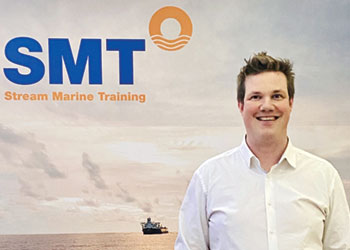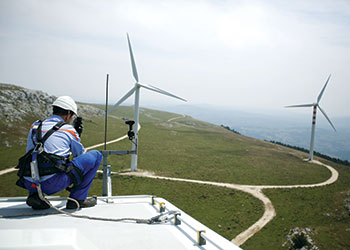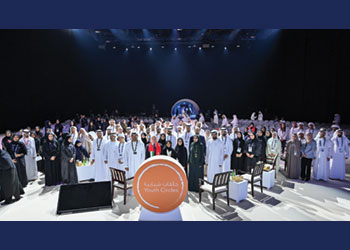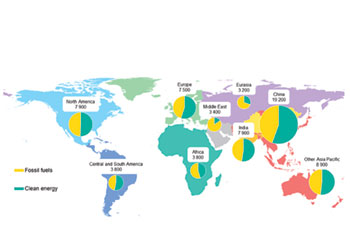
 White ... revolutionising offshore training
White ... revolutionising offshore training
With the rapid movement of new technologies, we need to ensure we are keeping ahead of the game with the constant re-evaluation of training and ensuring workers’ safety, Martin White of Stream Marine Group tells OGN
The offshore industry is at a crucial crossroads as it looks at ways to build a sustainable future with revolutionary new technologies, such as the advancement of carbon capture.
"We are at the risk of being seen as an unattractive employable industry as more and more negative press on the industry is circulated. The future is green, we all know that, and we must all look at how we can build a sustainable future, and the oil and gas sector is no different," Martin White, CEO Stream Marine Group, tells OGN energy magazine.
White sees it a challenge to remain attractive as an employable industry of the future.
Oil and gas is seen very much as an industry that is being wound down, where other technology industries are very much being seen as being built up.
There is an inherent risk of the industry suffering the risk of not being able to attract the right people and the right talent, because it is generally seen as non-environment-friendly.
"But that is not necessarily true, with recent technologies such as carbon capture which can stop harmful emissions from entering the atmosphere, there is the possibility that oil and gas fuels could be around longer than we first thought," White says.
The sector also forms a really important role in providing transitional fuels, such as LNG which is produced offshore, as well as creating the hydrocarbons required to build the infrastructure to transition to a green future.
Therefore, it is still crucial that there is a good pool of talent in this sector and that the industry remains focussed on bringing new talent into the industry.
At Stream Marine Training, there is an understanding of the importance of the offshore industry and the role it has to play.
 |
The helicopter underwater escape training used in the OPITO courses |
The company recently started offering OPITO-approved (Offshore Petroleum Industry Training Organization) courses.
Its portfolio of training courses now includes BOSIET (Basic Offshore Safety Induction and Emergency Training), FOET (Further Offshore Emergency Training) and MIST (Minimum Industry Safety Training).
Within just a couple of months of launching, the company held its first full BOSIET course. And it holds weekly courses at above 50 per cent capacity, so it has had a rapid growth entry into the market.
New technologies rapidly coming out into the market pose an interesting challenge for training, opines White.
He says: "Over the next 10 years, I believe that training will need to be diverse in the fact that the core principles of safety training will remain broadly the same, but the training on how new technologies work will become excrementally different."
In the face of the ever evolving new technologies, the industry must be constantly looking at its training offering to make sure people know exactly how that technology is best utilised, and especially safely utilised.
"We need to keep workers’ safety as our primary focus," White says.
"As e-learning has revolutionised our training structure and has firmly taken its position in the digital revolution, I believe there is a real need for blended learning, a combination of e-learning and practical training," he adds.
Practical training is still important as it gives someone the training that can trigger a memory if something was to go wrong and they know what they need to do to keep themselves safe, such as fire safety or evacuation.
A lot of that can be done through blended learning, it doesn’t have to just be one or the other.
There’s a real place in the market for blended learning when it comes to the safety of workers.
Through Stream Marine Training’s partner company Intelligent Seas Group, the company is seeing significant growth, with more companies wanting to take a blended learning approach and realising there is still a need for practical training, especially when it comes to safety training.
"Looking ahead I think the rapid movement of new technologies emerging into the sector will continue to challenge us as a sector and ensure we are keeping ahead of the game with the constant re-evaluation of the training we are offering and ensuring the safety of workers is kept as a priority," says White.
"The advancement of AI is definitely one to watch. I believe it could provide good quality data that will help the industry operate much more effectively and efficiently. It will help us understand effective ways in which we can work smarter, safer and more effectively, therefore reducing our carbon footprint by being much more efficient as an offshore industry," he concludes.
By Abdulaziz Khattak









































































